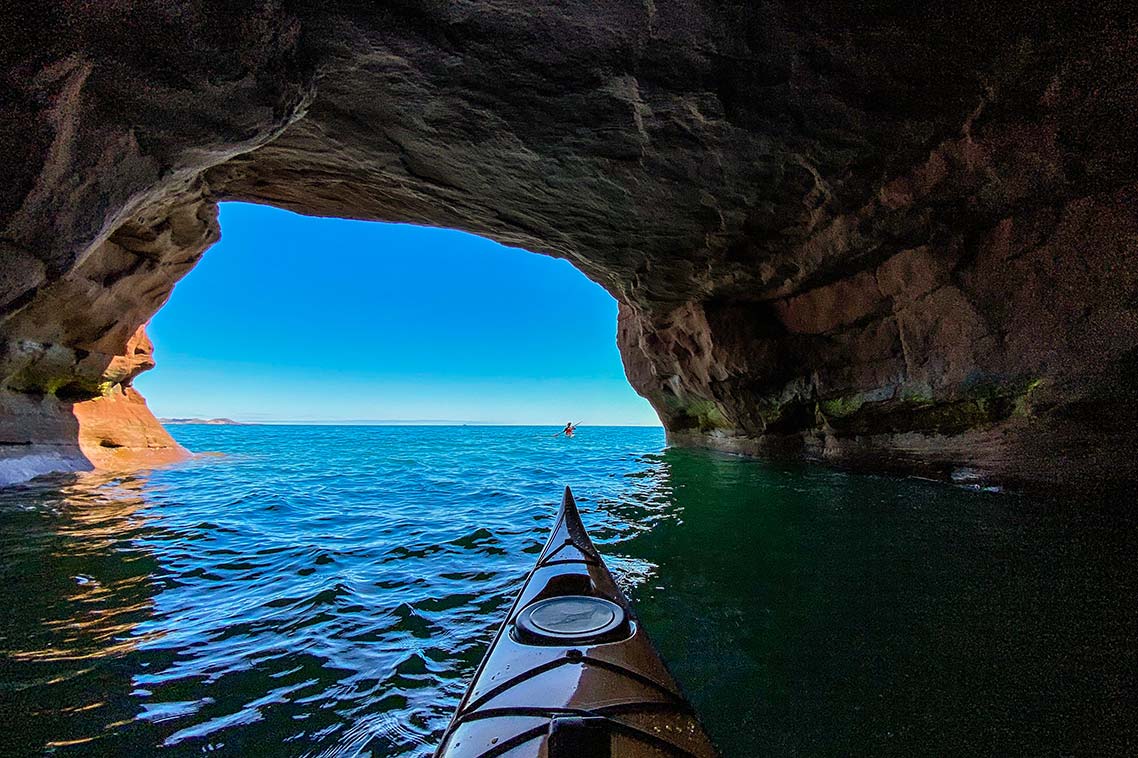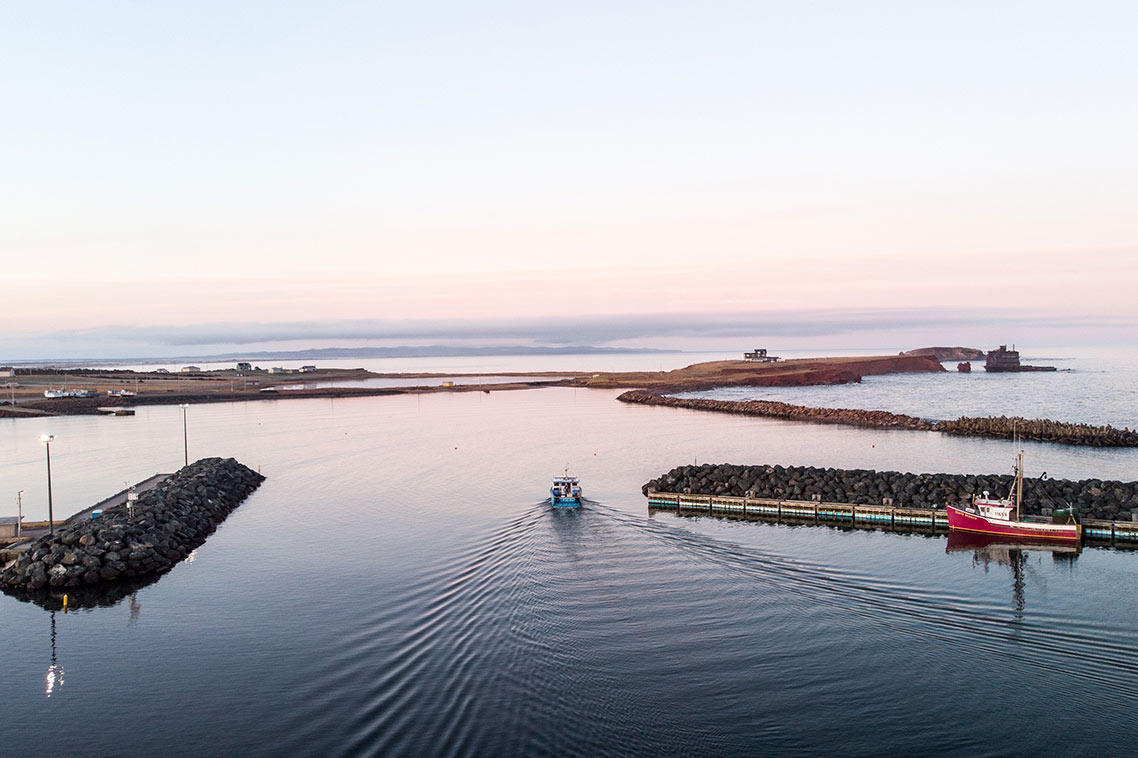
Sunrise over a lagoon in the Magdalen Islands
Feasibility assessment for a marine protected area in the Magdalen Islands
The Magdalen Islands are in the heart of the Gulf of St. Lawrence. Its landscapes are known for their sandy shores, red sandstone cliffs, and lagoons. The archipelago is made up of 15 islands, 8 of which have people living on them. Two municipalities are under the administrative structure of the Magdalen Islands Maritime Community. Commercial fishing and tourism are the main economic activities. Lobster and snow crab are the most fished.
The islands represent a unique natural and cultural maritime heritage in Quebec. They are rich in marine resources and the conservation know-how of local fishers. ‘Les Madelinots’ have a very close relationship with the marine environment. The fisheries and aquaculture sectors apply sustainable management measures as much as possible. The community is welcoming and proud of its roots and is always ready to share stories of them.
Visitors enjoy the natural seascape and rich cultural experience of the Magdalen Islands. The Islands are home to a community that is proud of its roots and always willing to share their stories.
A delicate balance
The surrounding waters are important breeding and feeding grounds for many marine species. It is particularly rich in crustaceans and invertebrates. The two main commercial species are lobster and snow crab.
A delicate balance exists between sustainable fisheries and ecosystem health. Like everywhere, the pressures of climate change affect marine life through impacts to water quality. These include an increase in temperature, a decrease in surface pH and oxygen in the sea bed. Accelerated erosion also impacts the coastal environment. These realities will be analyzed in the feasibility study.

The next steps of the feasibility assessment
A feasibility assessment is in progress for a marine protected area in the Magdalen Islands. This will define the benefits and impacts of a proposed marine protected area. The assessment is being conducted jointly by Parks Canada and the Quebec government. Specifically, Quebec's Ministry of the Environment and the Fight Against Climate Change.
A consultation committee has been set up to raise the interests of each sector of activity. They also assist in collecting recommendations. The committee consists of local representatives. These include:
- reps from the fishing and mariculture sector (in majority on the committee)
- elected municipal officials
- reps from other sectors of interest. These include socio-economic, environmental, educational, and research and development
Depending on whether the committee is in favour of the project, public consultation with the wider community will be mandatory. This project will be developed alongside local stakeholders to take into account their realities.
The feasibility study will make it possible to propose boundaries for a potential project. As well, they will analyze the potential management and governance arrangements. The feasibility study does not alter existing laws or regulations for fisheries and shipping. These continue to apply.
The governments of Quebec and Canada continue to work together with the local consultation committee. The goal is to develop a project that will reflect the needs of the local community. The aim is also to enhance the conservation of this unique maritime region for present and future generations. A marine protected area would help tackle the impacts of climate change. It would strengthen the sustainability of the fishing sector. This sector is the heart of economic activity for this special place. At its core, this project aims to ensure the region’s sustainability while highlighting the best practices of the fishing population.

News releases
- Date modified :